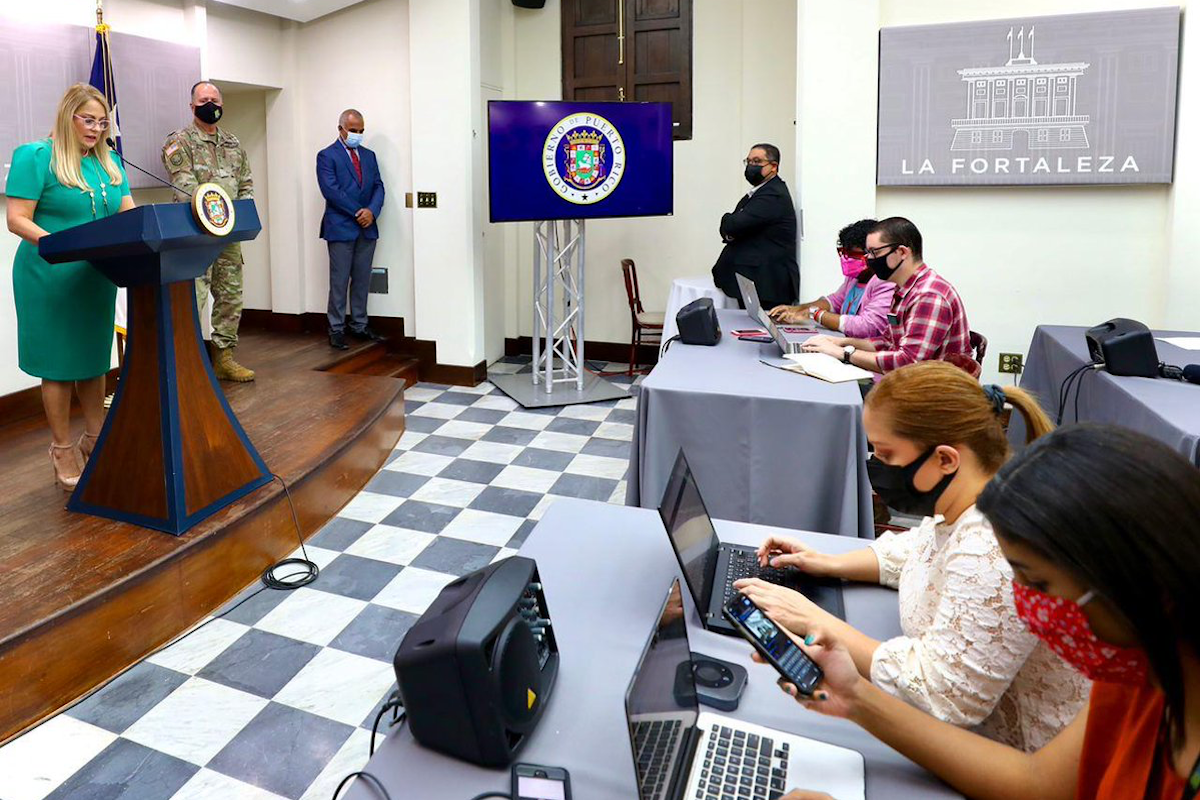

Puerto Rico governor Wanda Vázquez (left) on Thursday December 3 in San Juan (Photo via La Fortaleza)
By DÁNICA COTO, Associated Press
SAN JUAN, Puerto Rico (AP) — Puerto Rico’s governor on Thursday announced stricter measures to fight COVID-19, including a lockdown on Sundays and the closure of all marinas as the U.S. territory grapples with an increase in cases and deaths.
Gov. Wanda Vázquez also tightened an ongoing curfew, with businesses now ordered closed at 8:30 p.m. and no one allowed on streets from 9 p.m. to 5 a.m. except for essential workers and those delivering food until 11 p.m.
Only gas stations, pharmacies, grocery stores and hardware stores will be allowed to open on Sundays, though restaurants can offer delivery or carry-out. In addition, alcohol sales will be banned from Saturdays at 5 a.m. until Mondays at 5 a.m.
The new measures run from December 7 to January 7, the height of the island’s holiday and tourism season. Beaches also will remain closed except to those doing exercise.
“We have to pause to save the lives of our old people mainly,” Vázquez said after she read the names and ages of those reported dead on Thursday.
The governor warned that if the number of cases and deaths keep increasing, she would implement a total lockdown, but she did not approve other recommendations from independent health experts, including opening beaches under certain requirements and closing commercial businesses and allowing them only to sell online.
The island of 3.2 million people has more than 52,000 confirmed cases, more than 41,600 probable ones and more than 1,150 deaths. More than 100 people are connected to an artificial respirator, the highest number since the pandemic began. November also was the month with the highest number of deaths, with at least one major hospital at capacity.
“This is not acceptable for any government that values life,” she said.
Health Secretary Lorenzo González said more than 500 new cases are being reported daily, adding that the new measures are needed because health care workers are exhausted and the island’s health system heavily burdened.
“We need to give them a breather,” he said.
Officials have said they expect the first of some 1 million vaccines ordered to arrive in mid-December, with health care workers and certain public employees taking priority.


